Venture right into the heart of Africa, where wildness echoes back with the roar of lions, and landscapes stretch as far as the eye can reach the sky. Planning your dream safari in Africa can be as great an adventure as the wildebeest migration across the Serengeti if you are a first-time tourist looking to tailor-make your ideal safari.
Entwine with the varied tapestry of wildlife, luxury lodges, and raw beauty that only Africa’s expansive savannas and dense forests can give. From the iconic Masai Mara to Botswana’s Okavango Delta, with its majestic elephants, to the stunning views of Tanzania’s Ngorongoro Crater, every African safari unfurls another chapter in nature’s enormous volume.
Be on the lookout for tracing elusive leopard paw prints, eyeing towering giraffes, or experiencing the Big Five in their natural habitat. Keep reading, for we will walk you through crafting an itinerary that promises nothing less than a treasure trove of memories in the motherland of safaris.
1. Choose Your Destination Wisely
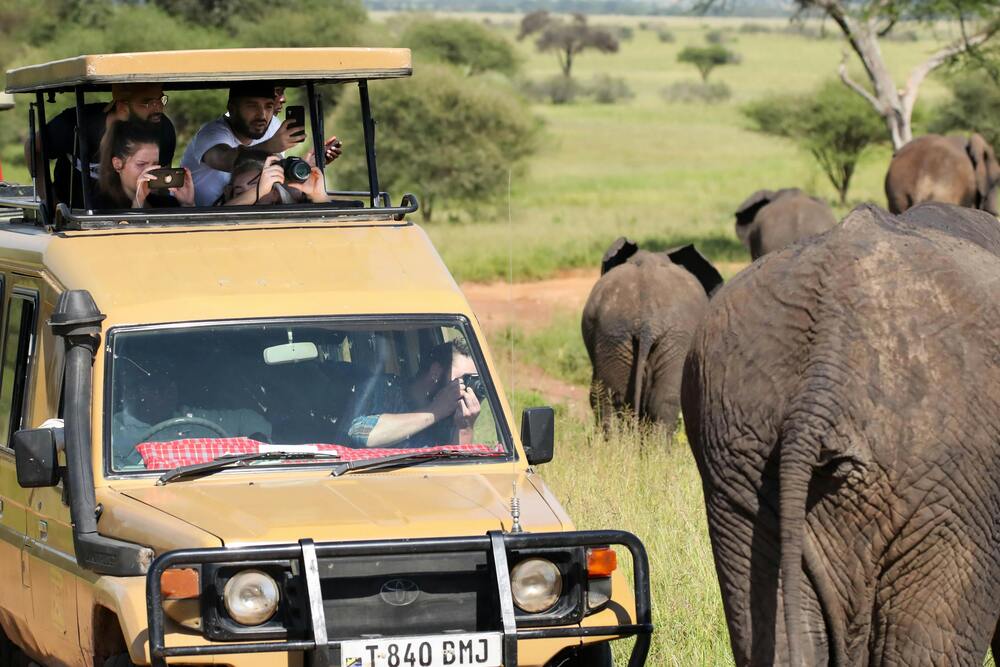
The choices of your African safari destination make those key moves that ensure your adventure is etched far into your memory as an epic tale of wilderness wonder. East Africa beckons at the legendary plains of the Serengeti and Masai Mara, where the Great Wildebeest Migration thunders and the Big Five rule. The regal lions, towering elephants, and monarchs of the savannah become your companions on a Kenyan or Tanzanian safari.
The opulent feline population in Southern Africa includes plentiful rhinoceroses and carefree leopards at the luxurious lodges of South Africa’s celebrated Kruger National Park and the pure aquatic splendor of Botswana’s Okavango Delta. While Namibia’s stark landscapes whisper tales of desert-adapted wildlife, Zambia’s walking safaris bring you close to nature.
And its hidden secret that never goes out of mind—gorilla trekking in Central Africa. A beauty that we can come very close to in the thick forests of Rwanda and Uganda.
Each place promises a unique experience:
- East Africa: Masai Mara, Serengeti, Ngorongoro, Wildebeest Migration
- Southern Africa: Kruger National Park, Okavango Delta, Victoria Falls, and Cape Town
- Central Africa: Gorilla Treks in Vast Rainforests
Choose well, for each one takes you down another thread of adventure, spun in amongst the giraffes one sees grazing and the soft footfalls of a leopard during a game drive. This is your African safari, with the experiences that each traveler dreams about.
2. Determine The Best Time To Go
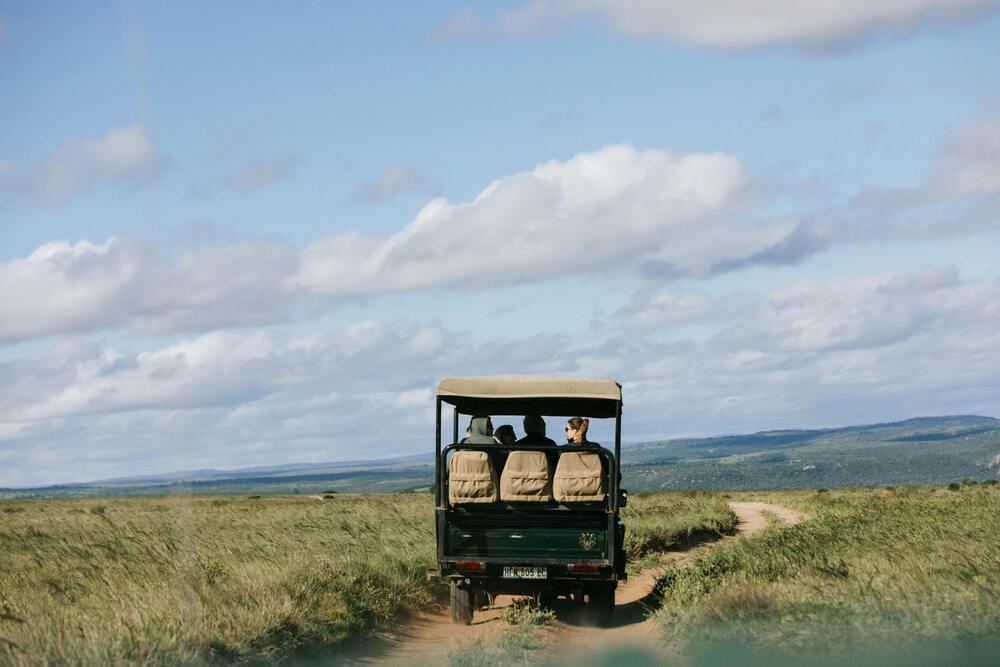
Timing is everything when planning your African safari. In the grand, successful scheme of understanding, knowing the seasons and what they bring in terms of wildlife moves you closer to having that unforgettable safari experience. Opposed to other seasons, dry seasons invest in better chances of wildlife viewing because this is the time most animals can be sighted around eyeing that water point. It’s the perfect time for visitors to experience the spectacle of the Great Migration in the Serengeti and Masai Mara or to be entranced by the abundance of the wildlife populations at the Ngorongoro Crater and Kruger National Park.
The seasons are the best:
- Dry Season: Game viewing is at its best, Great Migration sighted
- Wet Season: Landscapes are exceedingly green, birders love it, big herds of babies
The migrations, especially those of the wildebeest through the Serengeti and Masai Mara, have been called one of the “greatest spectacles on earth.”
The adopted peak or off-peak timing often plays a game-changing role in this budget. The peak season allows one to experience the most wildlife spectacle, whereas the off-peak will automatically come with better safari packages and fewer crowds at the luxury lodges and tented camps. Anyway, picking the best time to go on your first safari is really an order of balancing between wildlife opportunities, budget, and personal preference.
Good safari features to look for:
- Optimal wildlife spotting: dry season, migrations in focus.
- Budget considerations: peak vs. off-peak
- Personal preferences: crowd sizes, weather
With the above information, you are now a step closer to just the right African safari tours that promise to be the journey of your lifetime.
3. Budgeting For Your Safari In Places Like Kenya, South Africa, Zimbabwe, Botswana, Zambia, Namibia, And Tanzania
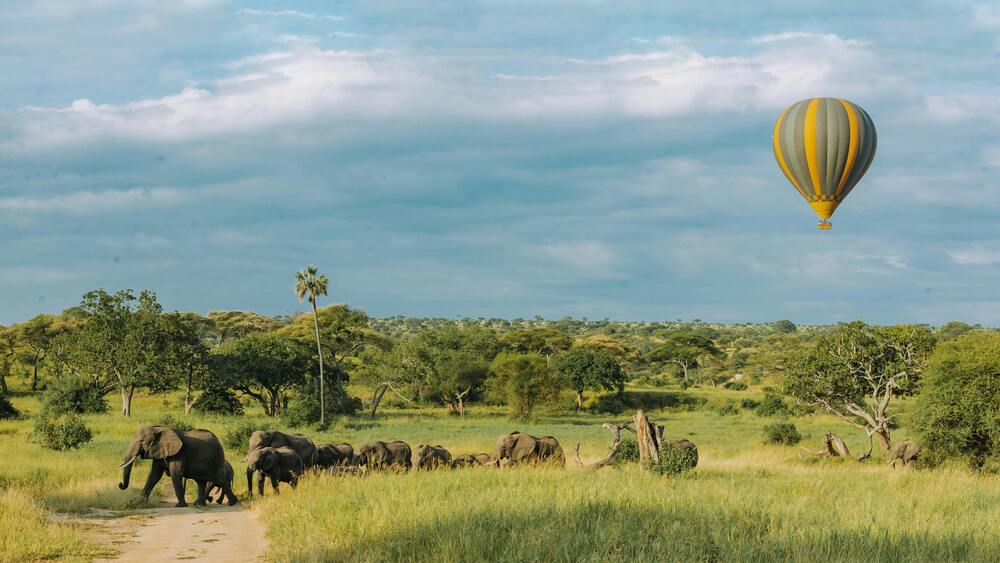
An African safari ranks on most of our bucket lists, but going for it can be highly-priced if one does not handle the budgeting with utmost care. Therefore, it is very important to know how best to spend on accommodation, travel, the cost of activities, and of course, the ‘hidden extras.’ See below how you can make every dollar count on your African safari adventure.
- Accommodation: Options range from luxurious Serengeti lodges to Botswana camps under canvas. Consider private reserves in South Africa for unique, intimate experiences.
- Flights: Kenya, Tanzania, South Africa—good flights from major cities link these countries. Taxis, local transports, and small charter planes that include safari vehicles all add up, so plan accordingly.
- Activities: From game drives to gorilla treks in East Africa to hot air balloon rides above the Masai Mara, there is a wide range of activities available. Just remember to pick those activities that are best aligned with what you want to see, be it the big five in Namibia or the wildebeest migration.
- Extras: Visas, vaccinations, tips, and souvenirs – they may sound small but can really add up fast.
Budgeting Tips:
- Advance Booking: Normally gets the best value for money for lodges and flights.
- Travel Low Season: Reduced prices in most lodges and camps, mainly in Botswana, Zambia, and Zimbabwe – all countries of Southern Africa.
- Combine Destinations: East Africa’s Kenya and Tanzania, or the combination of Victoria Falls, Cape Town, and the Okavango Delta in Southern Africa, saves on regional flights.
Spend more on the must-do activities and cut costs elsewhere—prioritize experiences. With a little bit of careful planning and some of these budget-friendly strategies, your African safari will be just as enriching as it is economical.
4. Health And Safety Precautions In An African Safari
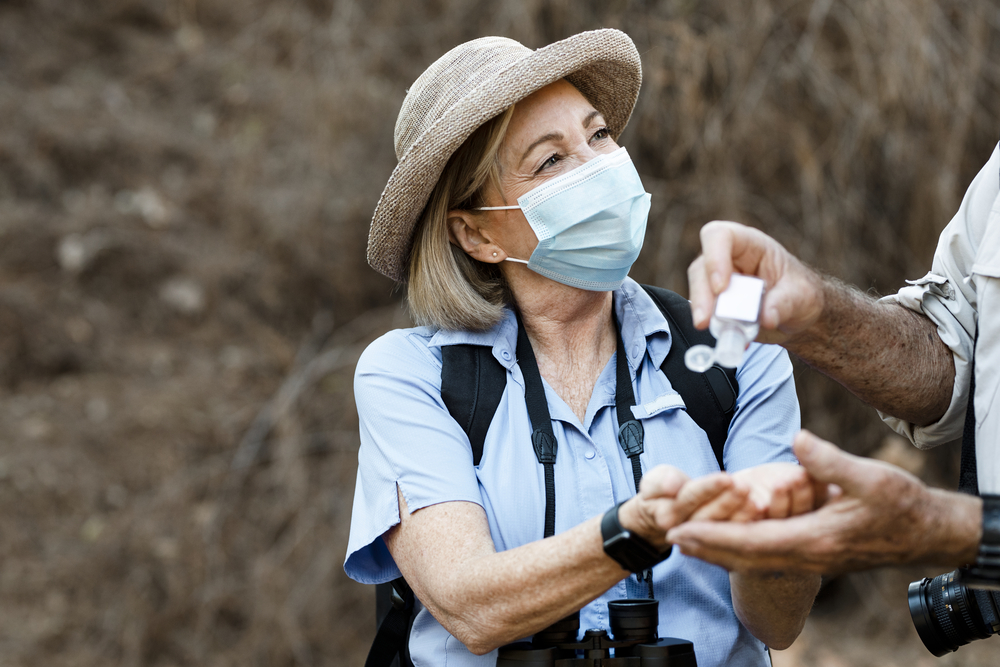
The health and safety aspects are of paramount consideration on any African safari adventure. This is how you can prepare to ensure a carefree and healthy trip:
Health Preparations
- Vaccinations: Consult a travel health specialist regarding necessary vaccinations for diseases such as Yellow Fever, Typhoid, and Hepatitis. You may also want to consider malaria prophylactics for areas around Kruger National Park or South Luangwa.
- Medical Kit: Always pack a complete travel health kit with medication against common ailments and first aid equipment.
Safety Precautions:
- Travel Insurance: Buy comprehensive insurance that will cover the cost of medical emergencies, evacuations, and trip cancellations.
- Respect Local Laws/ Customs: There are a wide variety of laws and customs in all of the countries in Africa. From visiting Maasai Mara National Reserve in Kenya to watching the Wildebeest Migration across the Serengeti, knowledge and respect for local customs will enhance the experience and keep you secure.
- Listen to your guide: Directions given by your safari operators and tour guides must be strictly adhered to. They know how to travel safely through the wilderness and how to get you the best possible views of the wildlife, including the Big Five.
With proper health preparation and sticking to the above-mentioned safety precautions, there you are—ready for a great safari experience that will be full of exciting sights and sounds of Africa’s grand wilderness.
5. Packing Smart

Packing for your African safari combines practicality with the indispensable to provide comfort and memorable moments in every second of your journey. Here is how to pack smart:
Must-Haves In Clothing And Gear:
- Lightweight, Breathable Clothing: Choose colors that will blend with the landscape, such as khakis and greens. Wear long sleeves and pants for protection against the sun and insects.
- Sturdy Footwear: Sturdy, comfortable walking shoes for game drives through Kruger or Serengeti.
- Weather Variability: Early morning drives tend to get pretty chilly, even in Kenya or Tanzania. Pack a warm jacket or fleece.
- Hat and Sunglasses: Definitely needed as protection against the scorching sun.
Personal Protection Items:
- Sunscreen and Lip Balm: SPF 30 or higher to protect you against the strong sun, especially in the open plains of Maasai Mara or the giant expanses of Namibia.
- Insect Repellent: With DEET or picaridin, it will save you from the annoying bites by mosquitoes that frequent the Okavango Delta or Victoria Falls.
Whether you are staying in a luxury camp or a wild tent, these essentials will prepare you for any adventure, including spotting the Big Five in South Africa, being in awe of elephant majesty in Botswana, or viewing the grace of gorillas in East Africa. Smart packing is a great start to an unforgettable safari adventure.
6. Choosing The Right Luxury Safari Tour
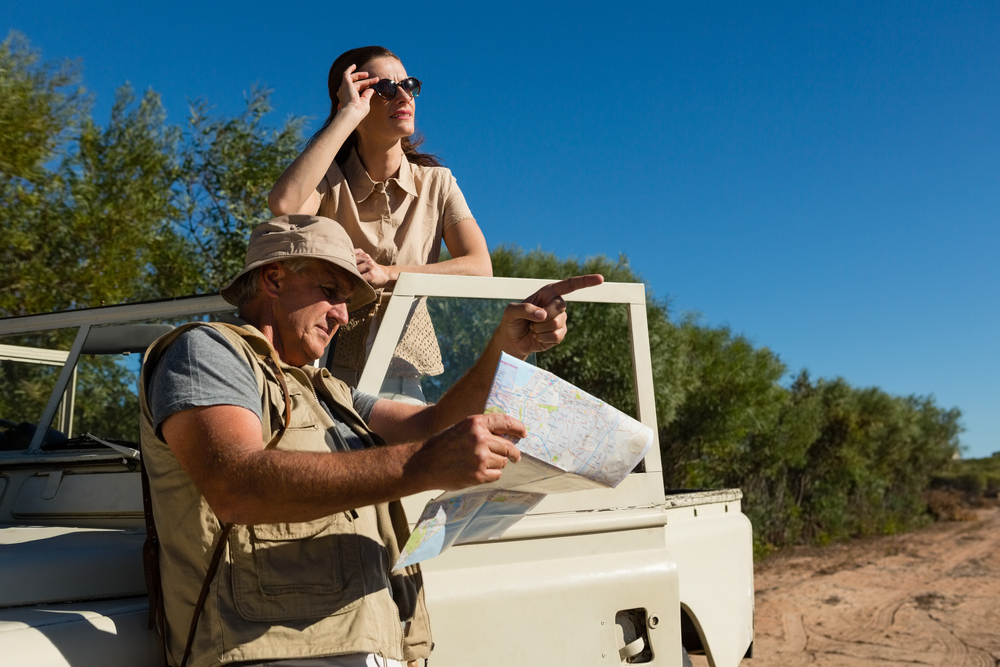
The right safari tour is important for enjoying the real marvel of Africa. Here is all you need to know to make a well-informed decision: Guided tours are your gateway to adventures. They offer a very smooth experience to first-timers. Enjoy peace of mind knowing that professionals handle all the details.
- Expert Guides: Their knowledge enriches your safari experience—from the great migration across Serengeti to spotting the Big 5 in Kruger National Park.
Group Vs. Private Tours:
- Group Tours: Cost-effective way to witness Africa’s wonders, share experiences, and make new friends.
- Private Tours: Tailored just for you, offering flexibility, privacy, and an intimate connection with Africa’s wildlands.
The Right Itinerary—The Heart Of The Adventure:
Pick on safari packages that ensure you get to experience your dream sightings, whether it is dry-season wildlife viewing in South Luangwa or the wildebeest migration in Maasai Mara. A well-planned itinerary by a reputably good tour operator can assure the best African safari experiences with luxury lodges, safari camps, and riveting wildlife safaris.
Be it the thunderous roar of a lion in Ngorongoro Crater or a mountain gorilla sighting in Bwindi Impenetrable Forest, the selection of the right safari tour operator is very essential. It is through these operators that the expansive continent of Africa becomes a reality, making sure your safari to Kenya, Tanzania, or any other magnificent park in Africa is an instant classic of a safari tale that will be treasured forever.
7. Respect Wildlife And The Environment
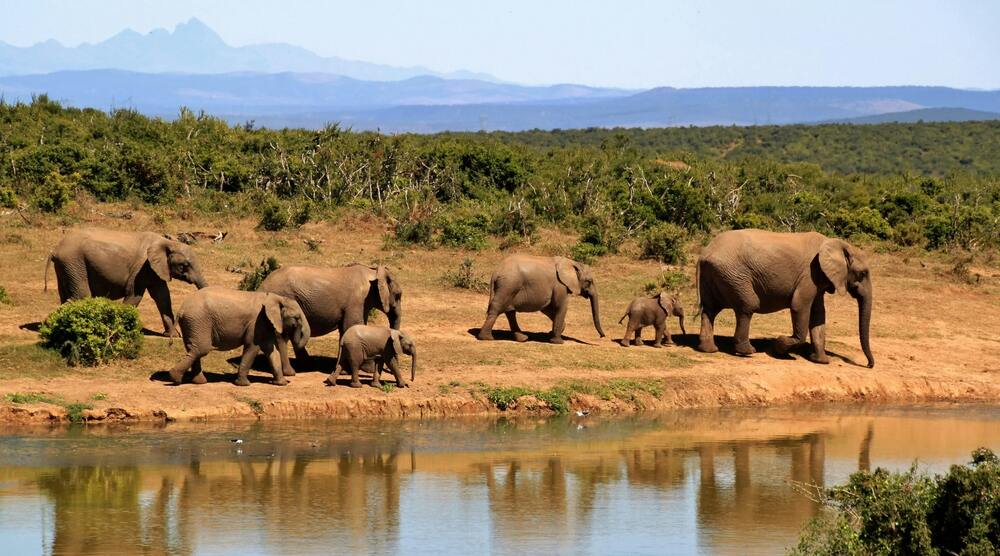
An African safari is a privilege of a lifetime that comes with lifelong responsibilities toward the land and its inhabitants.
Observing Wildlife Ethically
- Maintain Distance: Do unto others as you would want them to do unto you; do not infringe on wildlife space, particularly with the Big Five or the quiet grace of a giraffe.
- Silence is golden: Revel in the sounds of the bush, but keep noise levels low to avoid distressing the animals.
Park Rules – Pillar Of Conservation:
- Be Informed: Every national park, from Serengeti to Ngorongoro, has rules for saving wildlife and habitats. Obey them to the letter.
- Eco-Best Practice: Go for rated eco-friendly camps or lodges; after all, a luxurious safari is not necessarily one that damages the environment.
Respecting these principles means your safari becomes part of a strong and far-reaching conservation plan to protect the wild beauty of Kenya, Tanzania, Botswana, and the rest of Southern and East Africa so other travelers will do as well—an unforgettable, ethical encounter with the soul of Africa.
8. Immerse Yourself In The Culture
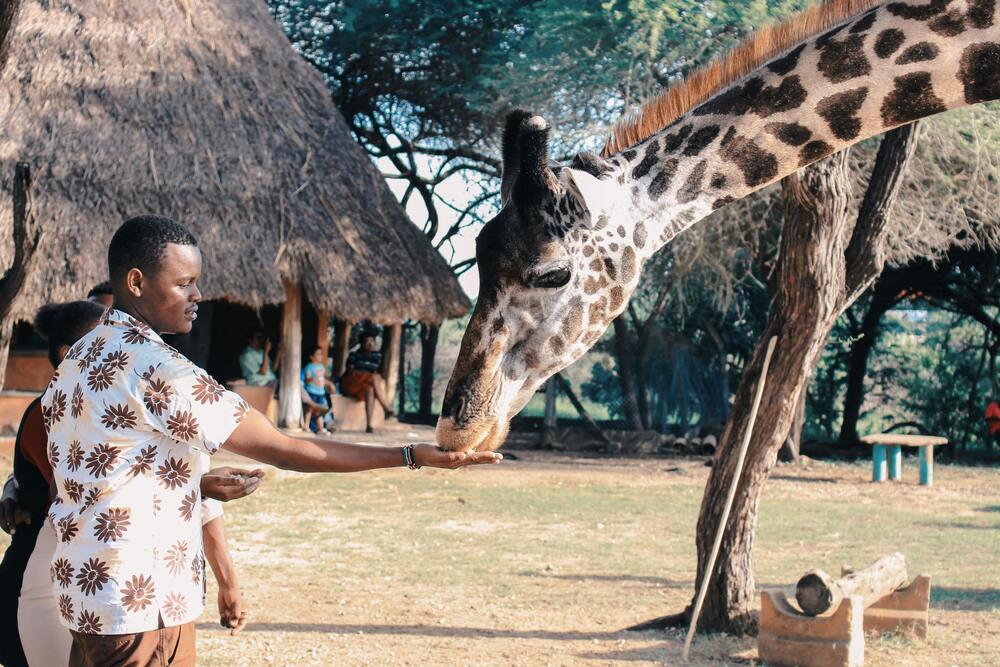
Africa’s not just all about the game—it’s a rich tapestry of cultures. And immersing yourself in the heart of your safari experience means immersing yourself in the local communities. Here’s how:
- Community Interactions: Experience life outside of the safari vehicle. Join in on traditional Maasai dances, browse through the colorful display of crafts markets, or enjoy dinner featuring local traditional cuisine. These exchanges with people are often some of the most treasured moments.
- Support Local Economies: Every little purchase counts. Whenever possible, always buy locally at the markets; this is an extremely direct way of aiding the community. From Maasai Mara National Reserve to Serengeti, your African safari tours are enriched with a choice to support artisan crafts and local produce.
Selecting African safari holidays with cultural immersion means supporting the ecosystem of human communities connected with it. Responsible engagement ensures that this is preserved for years to come. Recall, therefore, that the best African safari is the one where both wildlife and people thrive together.
9. Be Flexible And Patient
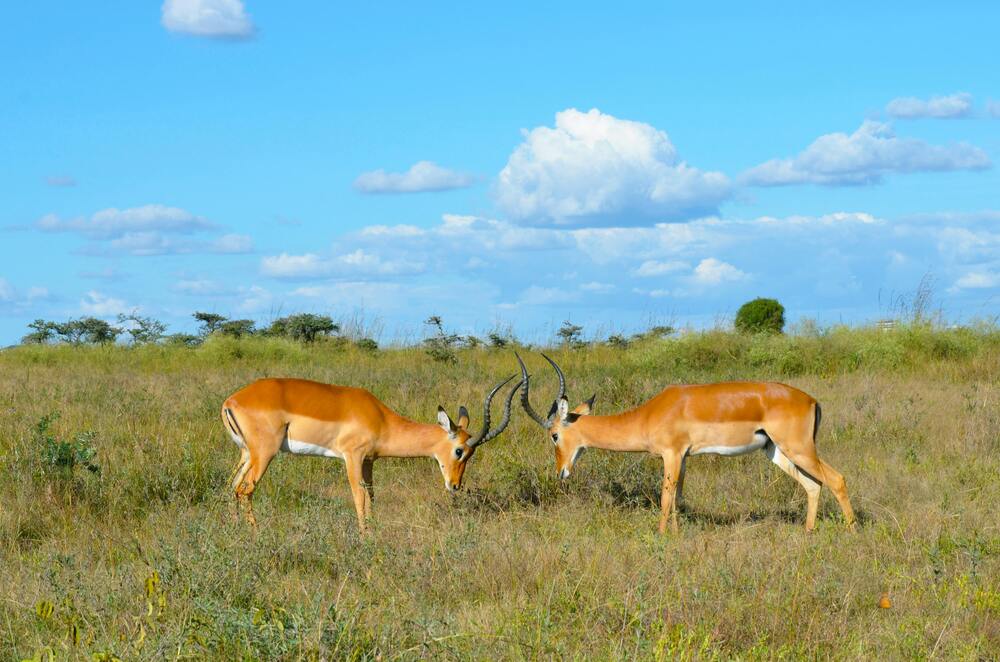
Take up the pulse of Africa, and let patience and flexibility be your closest allies. Wildlife works independently on its own majestic time. Embracing this unpredictability is key to deepening your safari experience.
- Embrace the Unpredictable: Animals won’t appear on cue, and the Great Migration won’t wait for your arrival. Yet, it is that spontaneity that makes African safari tours extraordinarily singular. It may be the great wildebeest migration across the Serengeti or the elusive sight of a leopard in Kruger National Park; patience rewards you with nature’s unrivaled show.
- Safari Pace: Slow down. Let the bush rhythm of your safari lodge set your day’s pace. This is more than a holiday; it’s the opportunity to connect with the soul of Africa. Let the lion’s roar or the grace of a gazelle be your clock.
A safari in Kenya, the Ngorongoro Crater, or any of the pristine destinations of the continent is not simply a view of wild animals; rather, it is a journey one returns from transformed. Bring with you curiosity, respect, and responsibility as you answer the call of the wilds of Africa. Your first safari is waiting—where is your spirit of adventure?

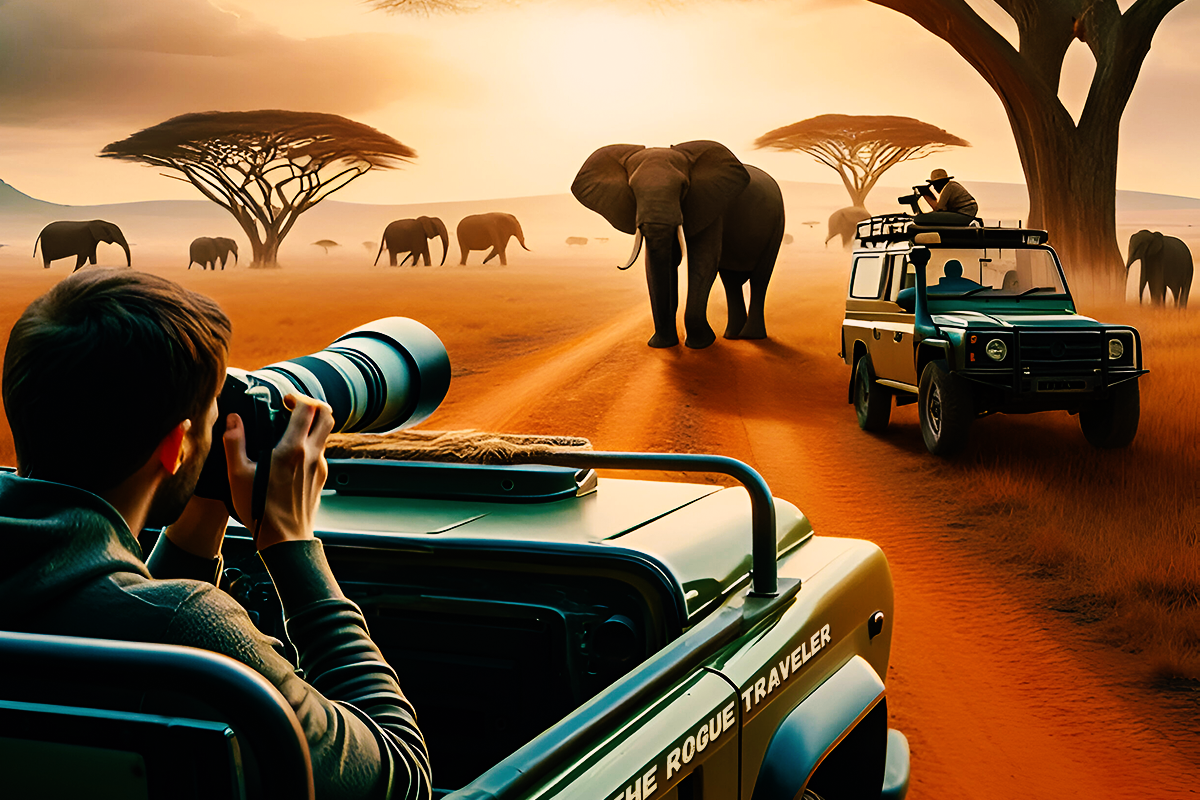
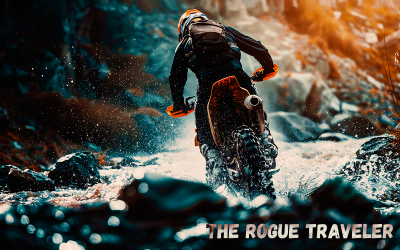
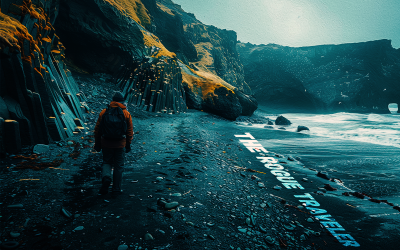
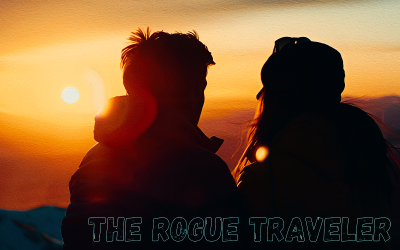
0 Comments